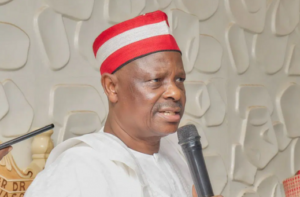The Federal Government (FG) of Nigeria has exceeded its domestic borrowing target for 2024 by N4 trillion, representing a 67% increase over the planned N6 trillion. As of November 2024, borrowing from domestic investors totaled N8.93 trillion, raising concerns about the nation’s rising debt stock and fiscal sustainability.
Debt-Financed 2025 Budget
President Bola Tinubu is set to present the 2025 national budget to the National Assembly, with a fiscal deficit of N9.22 trillion. The FG plans to finance this shortfall through domestic and external borrowing, multilateral/bilateral loan drawdowns, and privatization proceeds. However, the rising reliance on borrowing, particularly domestically, has sparked concerns about its economic impact.
Breakdown of 2024 Borrowing Activities
Data from the Debt Management Office (DMO) and the Central Bank of Nigeria (CBN) reveals:
- Third Quarter (Q3’24): N2.134 trillion borrowed through Treasury Bills (NTBs), FGN Bonds, and Savings Bonds.
- October-November 2024: N774.953 billion raised via NTBs, while FGN Bonds and Savings Bonds accounted for N635.752 billion and N7.152 billion, respectively.
In the first half of 2024, domestic debt stock rose by 38.6% year-on-year to N66.957 trillion, with significant contributions from NTBs, FGN Bonds, and Sukuk Bonds.
Analysts Highlight Risks of Excessive Borrowing
Economic experts have raised alarms over the implications of the FG’s borrowing patterns:
- Crowding Out Effect: Increased public sector borrowing limits private sector access to credit, stifling business growth and raising borrowing costs.
- Inflationary Pressures: High interest rates on government securities (up to 22.93% for 364-day NTBs in November 2024) have led to higher costs for businesses, further fueling inflation.
- Debt Sustainability Concerns: Analysts, including David Adonri and Dr. Muda Yusuf, warn of the risks of unsustainable debt-service-to-revenue and debt-to-GDP ratios, potentially leading to a debt trap.
The FG’s reliance on domestic borrowing comes amid a hawkish monetary policy by the CBN, which raised the Monetary Policy Rate (MPR) from 18.75% in February to 27.5% in November 2024. While higher interest rates attract investors to government securities, they also escalate debt servicing costs, pressuring fiscal resources.
Call for Strategic Debt Utilization
Experts like Victor Chiazor and Tajudeen Olayinka emphasize the need for borrowing to fund productive ventures, such as infrastructure development, that enhance economic output. They also urge the government to maintain sustainable debt metrics to avoid overwhelming the economyWay Forward
To address these challenges, stakeholders recommend:
- Sustainable Borrowing Practices: Prioritize project-tied loans over borrowing for recurrent expenditures.
- Economic Diversification: Boost productivity to improve debt-to-GDP and debt-to-revenue ratios.
- Private Sector Support: Reduce public borrowing to allow greater credit access for businesses.
As Nigeria navigates these fiscal challenges, maintaining a balance between borrowing and economic growth will be crucial to ensuring long-term sustainability.
Stay tuned to 9am News Nigeria for more Breaking News, Business News, Sports updates And Entertainment Gists.
















